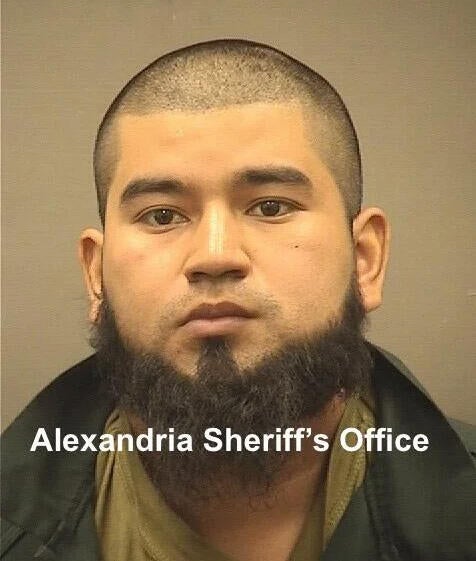In the unfolding legal controversy surrounding Henrry Villatoro Santos, a Virginia man once labeled by the Trump administration as the “East Coast leader” of MS-13, a notorious transnational gang, complex issues of justice and legal rights are at play. Last month, Villatoro Santos’ arrest was publicly announced during a nationally televised news conference led by the attorney general. Accusations against him included bearing responsibility for violent crimes and orchestrating the gang’s criminal operations across the United States.
Such severe accusations set the stage for a high-profile legal showdown. However, in an unexpected turn, the Justice Department is now seeking to dismiss the criminal case against Villatoro Santos altogether. This motion for dismissal, oddly enough, has Villatoro Santos and his legal team battling to keep the case active.
Currently held in pretrial detention in a jail in Alexandria, Virginia, Villatoro Santos faces a federal charge of felonious gun possession. However, details of his alleged ties and activities with MS-13 remain undisclosed by the Justice Department. The government’s strategy has shifted towards pressing for a case dismissal, paving the way for Villatoro Santos’ deportation from the United States.
Fighting against this move, Villatoro Santos’ defense has filed a motion requesting that the court block the dismissal of his case. This motion was initially denied by a judge, who has since paused his ruling to allow time for an appeal. Throughout this process, Villatoro Santos will remain in the custody of U.S. Marshals.
The core of the legal argument presented by Villatoro Santos’ defense revolves around the concern of due process—or the lack thereof. His attorney, Muhammad Elsayed, argues that deporting Villatoro Santos immediately upon dismissal of his case would violate legal and constitutional rights to a fair hearing, as reinforced by recent Supreme Court decisions. Moreover, there appears to be no planned due process hearings for Villatoro Santos. The Department of Homeland Security has not yet issued a Notice to Appear, which would typically be the preliminary step in legal removal proceedings.
Compounding these concerns are fears about the conditions awaiting Villatoro Santos should he be deported to El Salvador. His lawyers state unequivocally that he would likely be incarcerated in a notorious maximum-security prison—a fate similar to hundreds of Salvadorans and Venezuelans deported by the Trump administration under allegations of gang affiliation.
This legal battle over Villatoro Santos’ potential deportation is not isolated. In another case, attorneys from the American Civil Liberties Union have highlighted possible imminent deportations under the rarely invoked Alien Enemies Act following the relocation of a group of individuals to a Texas detention facility.
The particularly high-profile nature of Villatoro Santos’ case, coupled with the strong public accusations made by top government officials, has brought significant attention to the proceedings. During a press event, Attorney General Pamela Bondi, alongside other prominent figures such as FBI Director Kash Patel and Virginia Governor Glenn Younkin, heavily criticized Villatoro Santos, branding him a terrorist and a major criminal figure. Yet, when pressed for evidence or details concerning the accusations, the officials provided none, and similarly, no substantial case details have been forthcoming from the Justice Department.
Coverage of Villatoro Santos’ arrest and the nature of the public disclosures suggest a strategic handling of his case, with exclusive access earlier provided to certain media outlets. This raises questions about the motivations behind the government’s approach to this case and whether it might reflect broader political or strategic objectives.
As the legal proceedings continue, more court hearings are anticipated in the near future, which will likely further clarify—or complicate—the legal standing and future of Henrry Villatoro Santos. For now, the case remains a significant exemplar of the complexities and challenges at the intersection of criminal law, immigration policy, and human rights.









